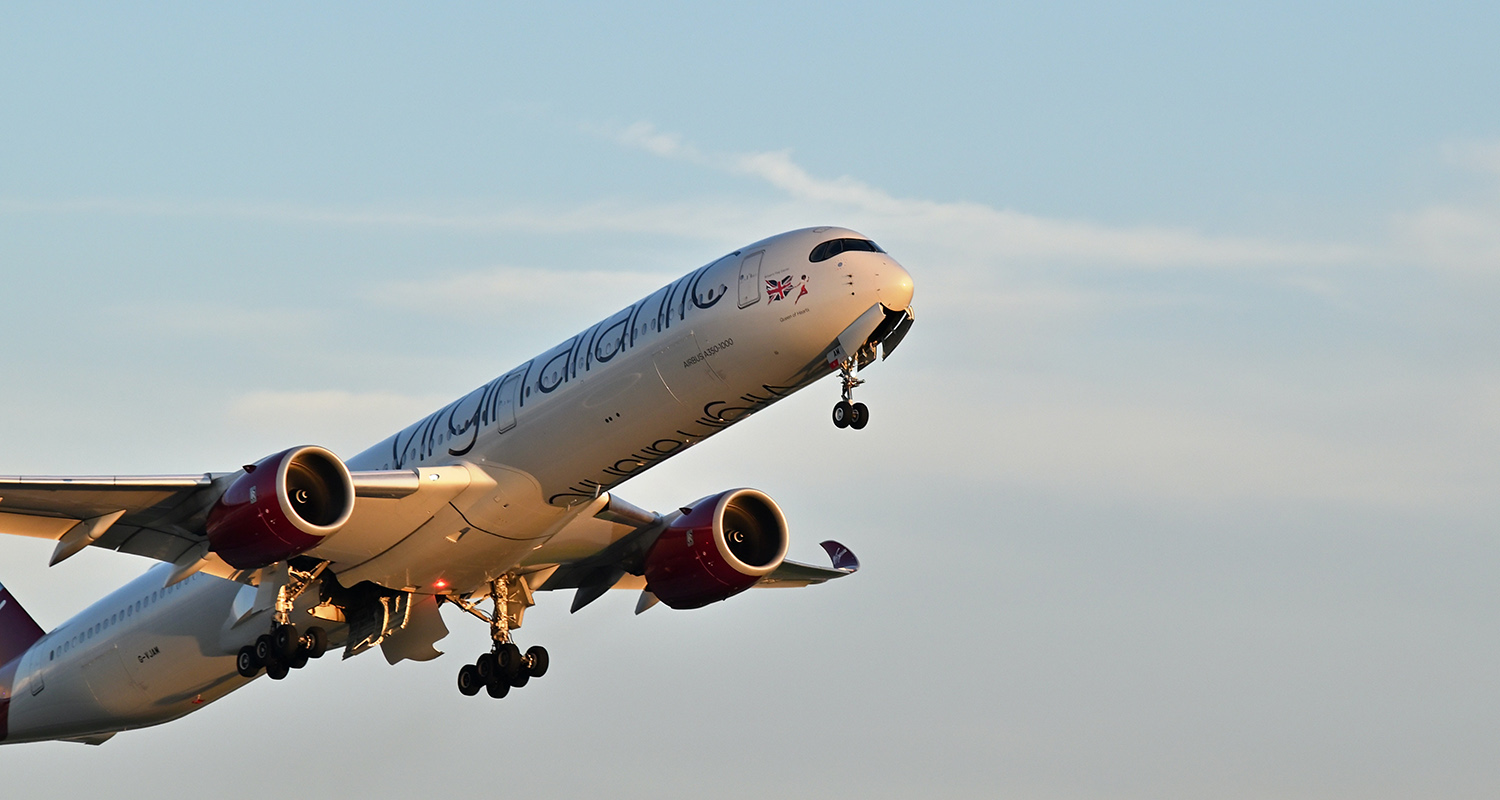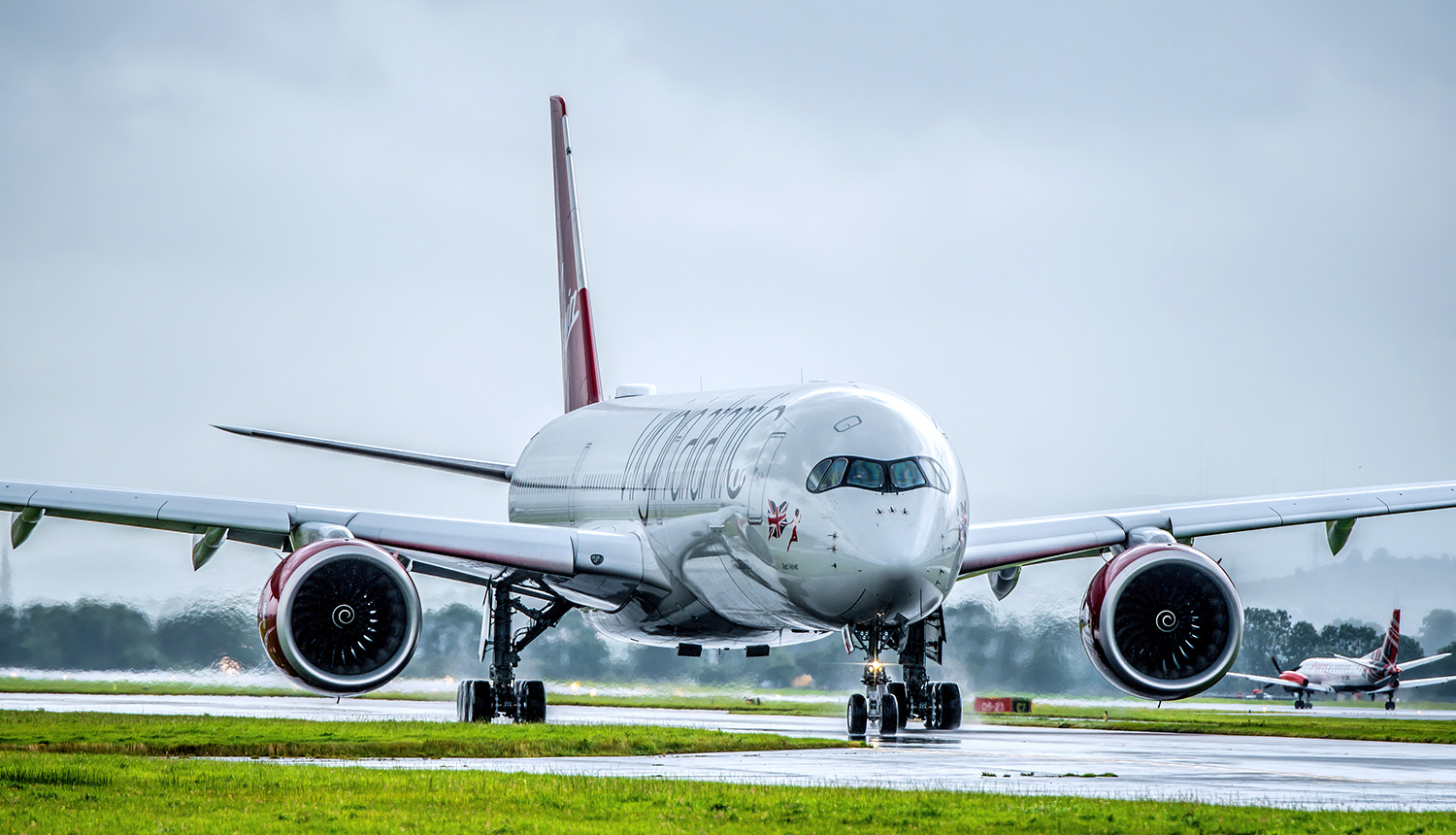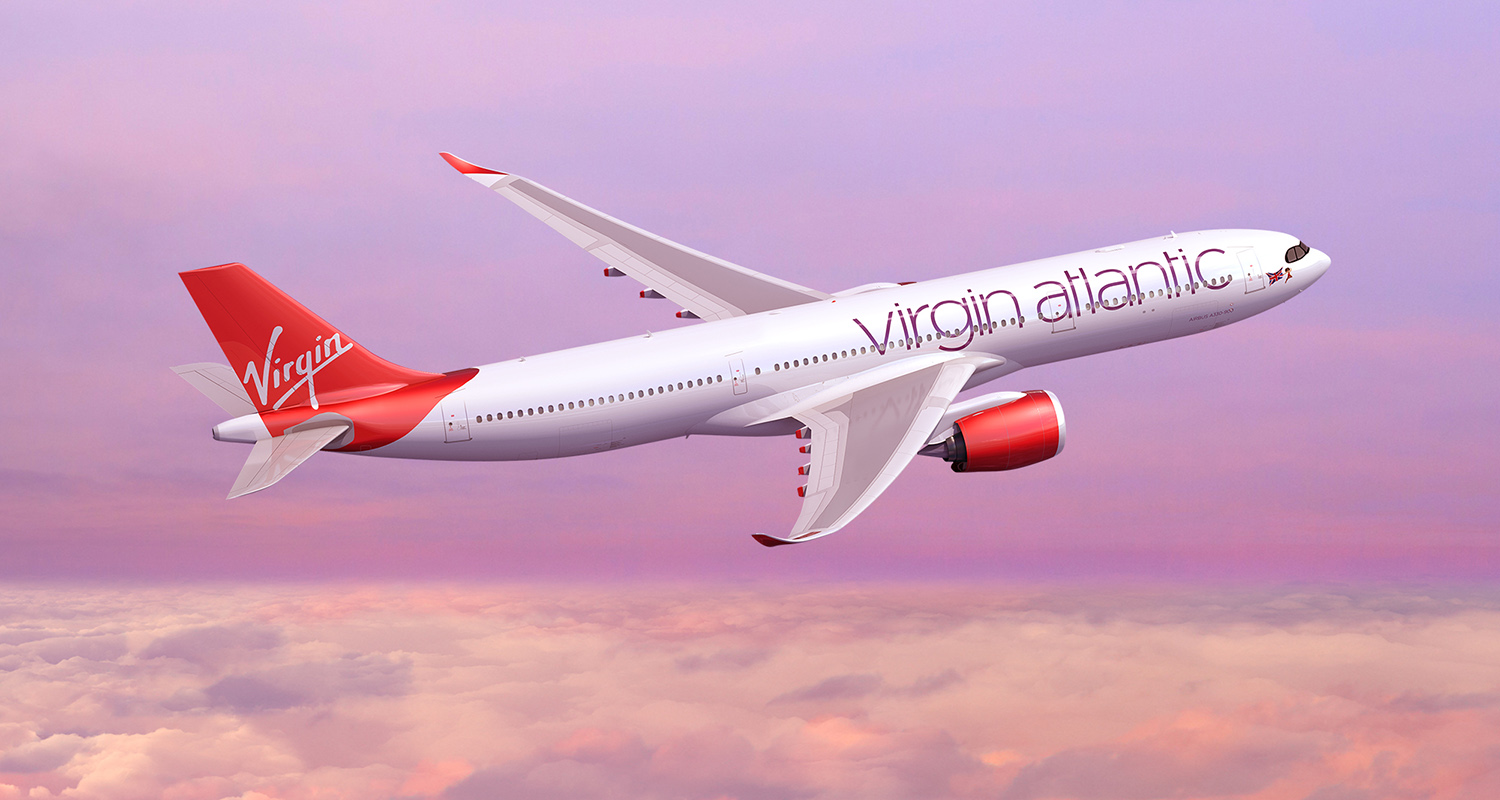
Virgin Atlantic plans first Net Zero flight for late 2023
From London Heathrow to JFK in New York: British airline Virgin Atlantic is planning the first transatlantic flight using sustainable fuel. The net-zero flight is scheduled to take place at the end of 2023.
February 4, 2023
It was already clear that the new decade would bring some major changes to the aviation industry. A major step - or rather: leap - in the direction of sustainability will be taken as early as the end of 2023: The British airline Virgin Atlantic recently announced that it intends to send the first net-zero flight in history across the Atlantic. The Boeing 787 is to run on purely sustainable fuel on its air route from London to New York.
With oil across the Atlantic?
Flying wild soon to be a lot more sustainable © Shutterstock
The Virgin Atlantic flight is powered by SAF: Sustainable Aviation Fuel. In contrast to kerosine, which is produced from petroleum, SAF is produced from used oils and fats. The biogenic SAF used by Virgin Atlantic is based on 100 % renewable raw materials: organic waste, used cooking oil, and grain are processed into fuel. There is just one disadvantage: The production costs of SAF are comparatively high.
For the Net Zero flight, Virgin Atlantic has secured a significant amount of sustainable fuel in late 2022 under a special agreement with Delta Air Lines and Gevo, Inc. For seven years, the British airline will purchase 10 million gallons of SAF per year. This will bring Virgin Atlantic to 20 % of its 2030 SAF target, equivalent to refueling more than 500 flights from London to Los Angeles.
Good to know: Global production of sustainable aviation fuels currently accounts for less than 0.1 % of total aviation fuels.
Sustainably through the air
With the new agreement, the British airline remains true to its previous line: Virgin Atlantic has already been dedicated to sustainability above the clouds for 15 years. 70 % of the fleet consists of next-generation aircraft. As a result, according to its own data, it has been able to reduce CO2 emissions by 36 % over the past ten years.
Net Zero by 2050 as a collective target
By 2050, the entire UK air fleet should follow suit. © Virgin Atlantic
The decarbonization of aviation is one of the aviation sector's major goals. While the International Civil Aviation Organization (ICAO) has agreed to halve emissions by 250, the United Kingdom is pursuing far more ambitious targets: by 2030, at least 10 % of aviation fuel is to be of sustainable origin. By 2050, they want to power the UK's fleets entirely with SAF. Whether the British will actually achieve Net Zero by then remains to be seen. However, as Virgin Atlantic proves, the will is there.
Related: Virgin Galactic - First tickets available for short trip into space



